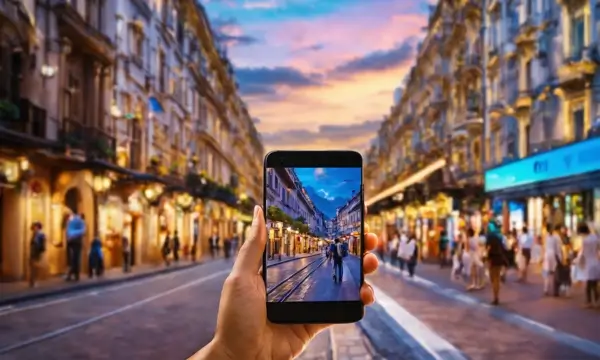
Technology has revolutionized numerous industries, and the tourism sector is no exception. In recent years, advancements in technology have significantly transformed the way people travel, plan their trips, and explore new destinations. From online booking platforms and mobile applications to virtual reality experiences and artificial intelligence-powered chatbots, technology has opened up a world of possibilities for both tourists and the tourism industry. This article explores the profound impact of technology on the tourism sector and highlights how it has enhanced travel experiences for individuals worldwide.
Online Booking Platforms and Travel Aggregators:
Gone are the days when travelers had to rely solely on travel agencies or spend hours searching for the best deals. The emergence of online booking platforms and travel aggregators has simplified the process of planning and booking trips. Websites such as Booking.com, Expedia, and Airbnb allow travelers to browse through a wide range of accommodation options, compare prices, read reviews, and make reservations with just a few clicks. These platforms have made travel more accessible, convenient, and affordable, empowering individuals to explore various destinations around the globe.
Mobile Applications for Travel:
Mobile applications have become indispensable tools for modern travelers. Whether it's finding the best local restaurants, navigating unfamiliar cities, or accessing real-time flight information, there is an app for almost every aspect of travel. Applications like Google Maps, TripAdvisor, and Airbnb not only provide valuable information but also offer personalized recommendations, reviews, and ratings. Additionally, language translation apps have bridged the communication gap, making it easier for travelers to interact with locals and immerse themselves in different cultures.
Virtual Reality (VR) and Augmented Reality (AR):
Virtual Reality (VR) and Augmented Reality (AR) technologies have brought a new dimension to the tourism industry. VR allows users to experience virtual tours of destinations, historical landmarks, and natural wonders, providing a glimpse into places they may not be able to visit physically. AR, on the other hand, overlays digital information onto the real world, enhancing travelers' experiences by providing interactive guides, historical facts, and hidden details about attractions. These immersive technologies offer a unique way to explore and engage with destinations, enticing travelers to plan their next adventure.
Artificial Intelligence (AI) and Chatbots:
Artificial Intelligence (AI) has become increasingly prevalent in the tourism industry, particularly through the use of chatbots. AI-powered chatbots provide instant assistance and support to travelers, answering their queries, offering recommendations, and even helping with bookings. These virtual assistants are available 24/7, ensuring personalized and efficient customer service. AI algorithms also analyze vast amounts of data to provide personalized travel suggestions based on individual preferences, making trip planning more tailored and enjoyable.
The marriage of technology and tourism has reshaped the way people explore the world. From simplifying the booking process to enhancing on-the-go experiences, technology has become an integral part of the travel industry. Online booking platforms, mobile applications, virtual reality, and artificial intelligence have transformed the way travelers plan their trips, navigate new destinations, and engage with the local culture. As technology continues to advance, we can expect further innovations that will revolutionize the tourism sector, providing even more immersive and personalized travel experiences for individuals worldwide. So, embrace the digital revolution, and let technology be your guide on your next adventure. Happy travels!
